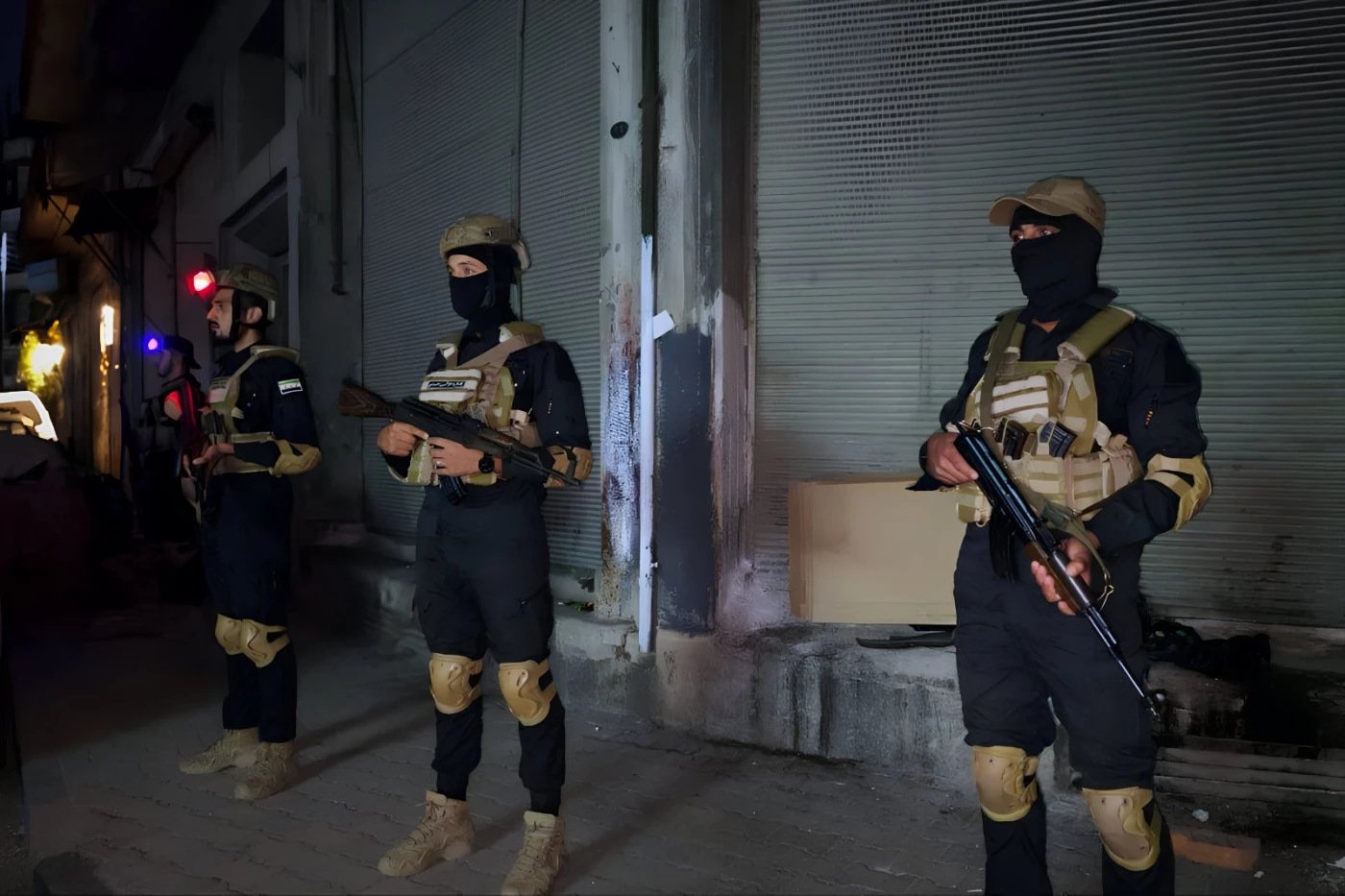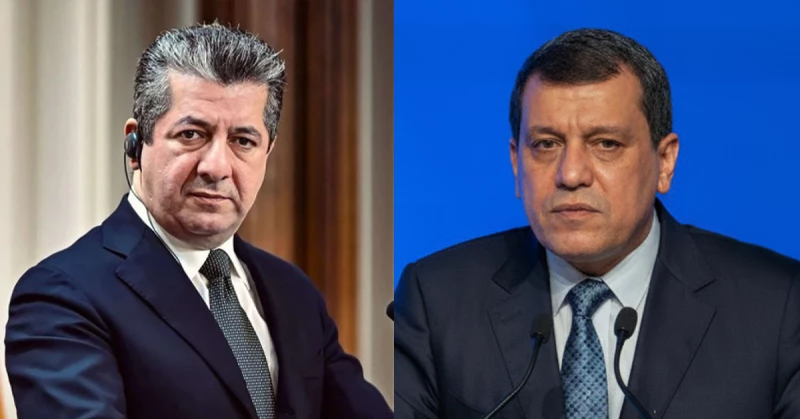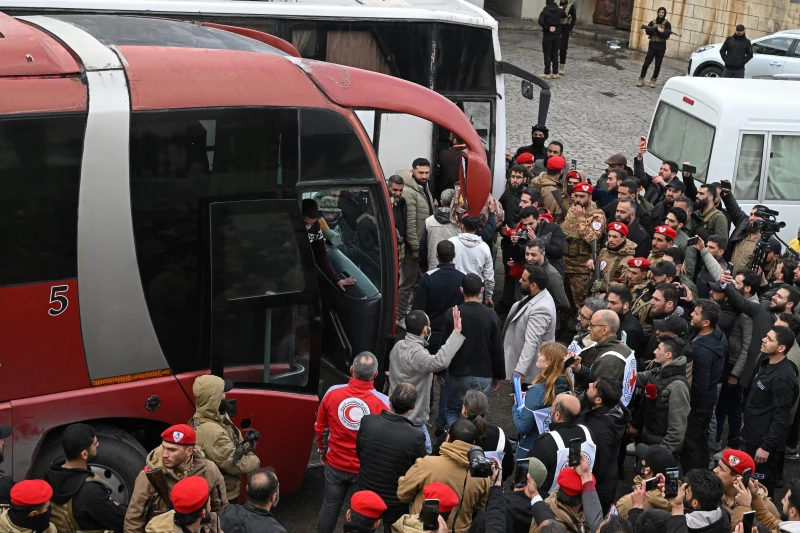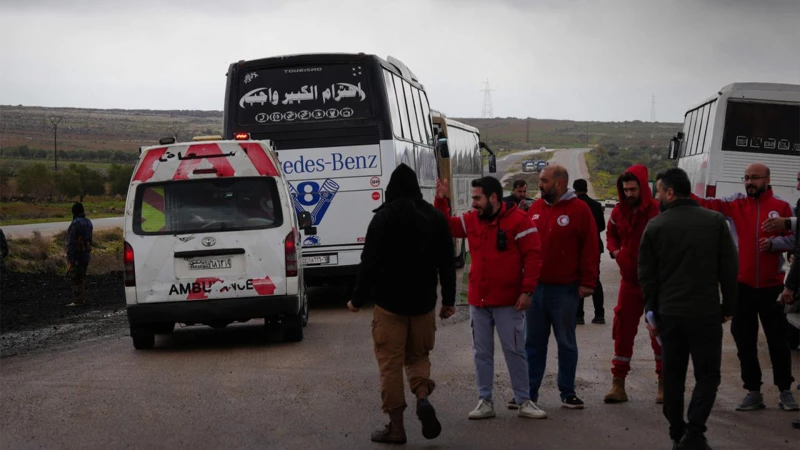ERBIL, Kurdistan Region of Iraq – Syrian government forces on late Monday engaged in heavy armed clashes with the Kurdish-led internal security forces (Asayish) in Kurdish-majority neighborhoods of northern Aleppo, marking the largest escalation yet between the Kurds and the new Damascus administrations
Residents of Aleppo’s Kurdish-majority neighborhoods of Ashrafieh and Sheikh Maqsoud took to the streets on Monday evening, protesting the interim government’s unexplained closure of all roads leading into the area following an explosion on the outskirts of Ashrafieh. The government forces used to tear gas to disperse the demonstrators, leading to armed escalations between the Damascus-aligned groups and the Asayish. Live ammunitions, drones, machine guns, and mortar shells were used in the clashes according to the UK-based Syrian Observatory for Human Rights (SOHR).
The Asayish said in a statement in the early hours of Tuesday that its forces were “repelled a large-scale attack launched by forces affiliated with the interim government.”
Syrian state media (SANA) claimed that the escalations first erupted after government forces in Aleppo discovered a tunnel on the outskirts of Ashrafieh, allegedly used by the Syrian Democratic Forces (SDF) to “infiltrate and carry out operations against army and security forces.” The security forces detonated the tunnel and closed all roads leading to the two neighborhoods.
SANA further accused the SDF of sending members in civilian clothes to attack security checkpoints with “sticks and stones, before its armed members infiltrated and targeted the checkpoints with mortar shells, killing one and injuring four among the ranks of the internal security forces, in addition to one civilian killed and several others wounded.
In a statement, the SDF denied the accusations that its forces had attacked the government checkpoints, stating that its forces have withdrawn from Sheikh Maqsoud and Ashrafieh since April, per an understanding with Damascus.
The Kurdish-led armed group described the escalations in Aleppo as “a direct result of provocations by the interim government factions,” accusing the government forces of assaulting the residents of the two neighborhoods, and holding Damascus responsible for the escalations.
“What is happening in the Ashrafieh and Sheikh Maqsoud neighborhoods is the result of a series of repeated attacks by Damascus government factions against the civilian population. They have imposed a stifling security and humanitarian siege, cut off aid and medical supplies, kidnapped many residents, and continued their daily provocations against residents at checkpoints and around the neighborhoods. Recently, they have erected earthen barriers around the neighborhoods, imposing a siege,” read the statement.
The Kurdish-led Autonomous Administration of North and East Syria (AANES) also condemned the attacks by government-affiliated on the Kurdish neighborhoods, describing it as “a blatant violations,” and calling on the international community to intervene and stop the “racist practices” of the interim government.
Demonstrations were held across several Kurdish-majority cities in north and east Syria in solidarity with the residents of Sheikh Maqsoud and Ashrafieh.
Sheikh Maqsoud and Ashrafieh are under the control of local forces affiliated with AANES, while government forces control the entrances and exits.
On March 10, Syrian President Ahmed al-Sharaa and SDF commander Mazloum Abdi signed an agreement that would see the group and its institutions in northeast Syria integrate with the Syrian state.
The implementation of the agreement has stalled as the SDF and Damascus-affiliated forces have clashed repeatedly in recent months, with both sides accusing the other of provocations and attacks.
The clashes on Monday mark the largest escalation yet between forces of Sharaa’s government and the Kurds. The interim administration has been widely criticized for its handling of anti-government movements in Druze and Alawite majority parts of the country, in which thousands of civilians were killed.



 Facebook
Facebook
 LinkedIn
LinkedIn
 Telegram
Telegram
 X
X


